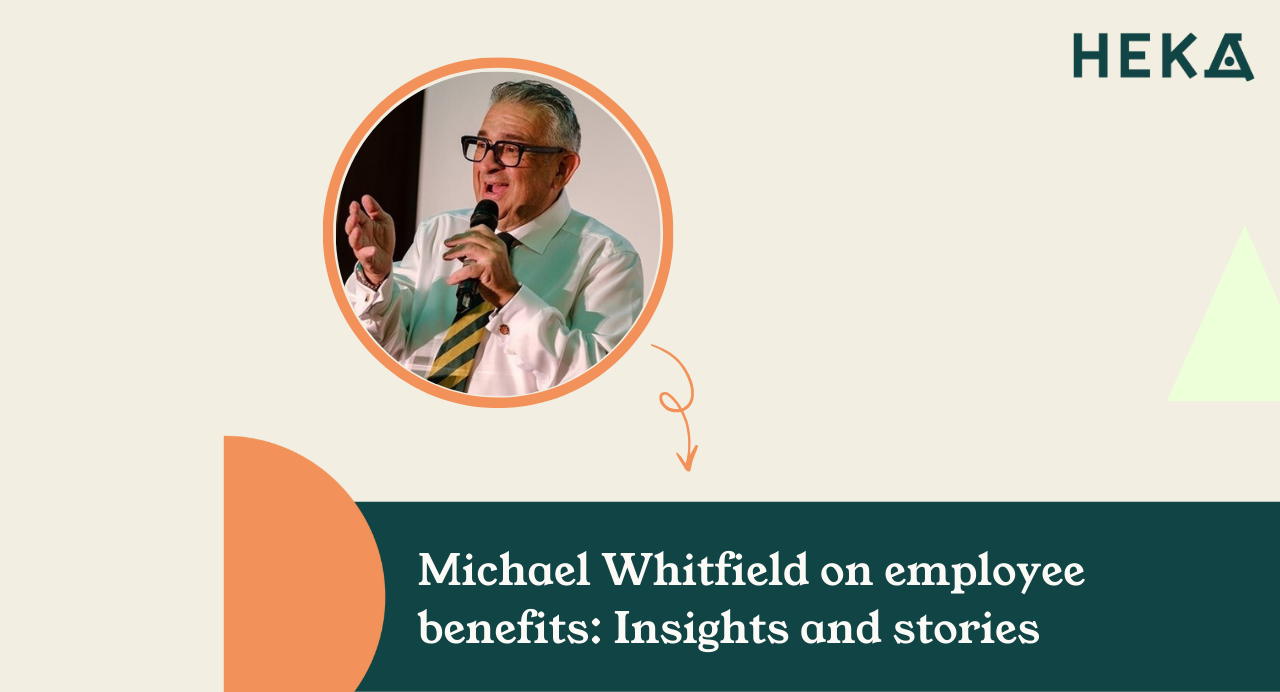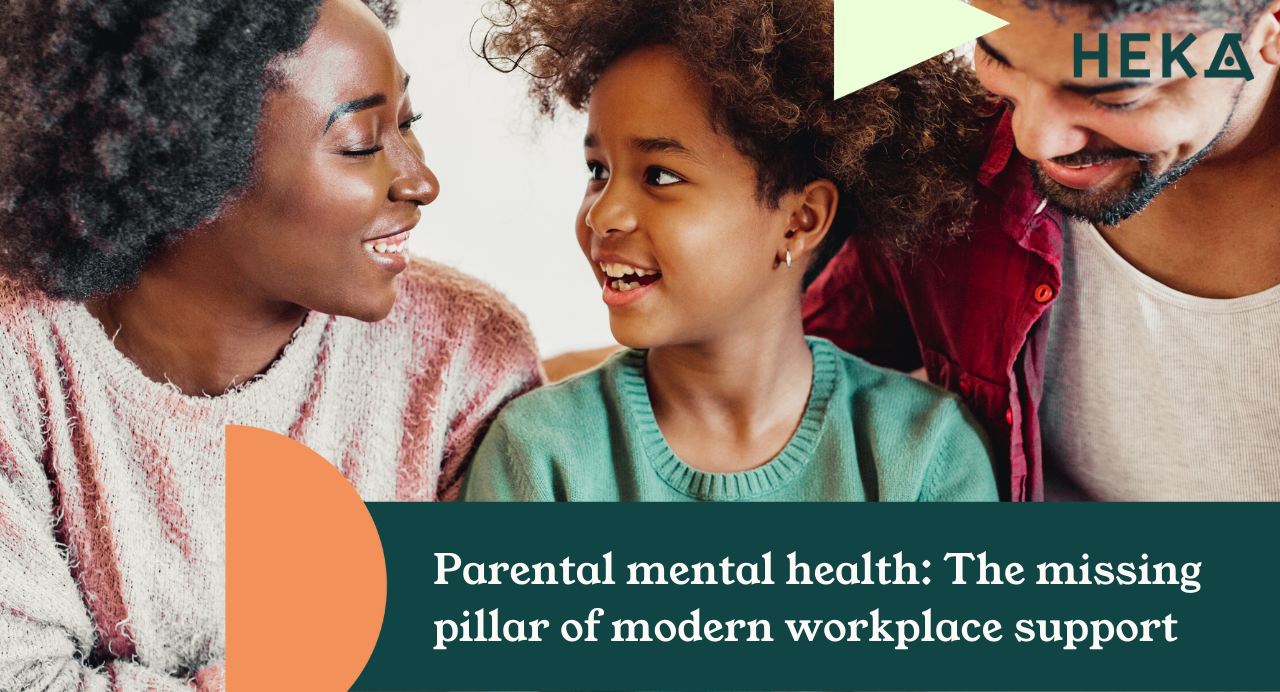A quick summary:
Michael Whitfield, Chairman of Heka, has spent decades shaping the employee benefits landscape. From humble beginnings as an Independent Financial Advisor to co-founding Thomsons Online Benefits (now Darwin), his career is a mix of insight, innovation, and impact. In this conversation, Michael shares his journey, perspectives on where the industry is headed, and a few unexpected stories along the way.
What inspired you to originally work in employee benefits consulting?
I actually started out as an Independent Financial Advisor (IFA) back in 1980. As my clients grew in their roles, they became MDs, FDs and CEOs, and started asking me to look after their companies. I, of course, said I’d be happy to, despite having little knowledge of how.
I soon learnt, and I absolutely loved the challenge of helping their businesses, and especially helping their employees. This was when I first started to truly understand the importance of culture in the workplace, and how a good culture could supercharge growth whilst a poor culture was extremely detrimental to progress.
What’s one benefit trend you’re excited about right now? What’s catching your eye in the industry at the moment?
Unsurprisingly, it’s AI. We’re at a stage now where being “AI-first” is as fundamental as being “mobile-first” was a few years ago. And while the hype is loud, the real impact lies in how AI can enhance personalisation, automate admin, and give employees truly intelligent guidance through their benefits choices. It’s not about replacing people - it's about augmenting the experience in smarter, more human ways. People will always drive businesses; AI is able to make that growth quicker and more relevant.
How do you see employee benefits changing in the next 5 years?
Benefits will become far more dynamic and personalised. Flexibility will continue to be a major theme, but I also see a shift toward more data-informed decision-making - both from employers and platforms. AI will play a big part in helping people understand which benefits genuinely matter to them, and where their needs are being met (or missed). The one-size-fits-all model is well and truly on the way out: employees demand benefits that they actually need more and more.
How do you keep up with the constantly evolving benefits landscape? Any tips or resources you rely on to stay informed?
Honestly, I rely on conversations with people in the benefits space that live it and breathe it every day. And of course feedback from employees that use the benefits. Too many people still sit in their ivory towers and make decisions based on what they think is best for employers. There is no substitute for talking to real people that implement the benefits or actually use them - ignore them at your peril!
I also try to read broadly across tech, economics, and behavioural science, not just HR, because the most meaningful innovations often come from outside your own bubble.
What’s your favourite success story from your consulting work? Share a memorable moment or achievement you’re proud of.
There’s no single moment that stands out more than building Thomsons Online Benefits (now Darwin). Watching it grow from an idea conceived in a taxi on my way to meet a client with Chris Bruce, into a platform that now supports millions globally was incredibly fulfilling.
But more than the numbers, I’m incredibly proud of the team we built. People with brilliant minds who genuinely cared about improving people’s experience of work. That’s the kind of success that stays with you and it is even more gratifying to see how so many of them have become leaders across the benefits industry.
How do you handle challenging conversations around budget and benefits? What’s your approach to navigating tough discussions?
With honesty and pragmatism. The current market is, to put it mildly, turgid. It’s not a downturn you can take advantage of, nor is it a boom you can ride. That makes budget conversations tougher than usual.
In these moments, it’s vital to tie benefits back to business outcomes - retention, engagement, wellbeing - and frame them not as costs, but as investments in people. CFOs aren’t interested in emotion or fluff. At a time like this, it’s cold hard facts and data that drive decisions. Show them the money, and you are more likely to get a favourable decision.
What’s a fun fact about yourself most people wouldn’t guess?
Two fun facts for you! When I was 15 - a lifetime ago - I was a reporter on John Craven’s Newsround for two series. I remember my favourite outfit was pink and white striped flares and a pink brushed denim jacket - I guess that’s where the love of pink started!
And in the world of rugby, I’m known as Rhino. This nickname has been part of my life for over 35 years. I was at in a hotel in Nairobi, having just come off a flight from London, and a waiter was overheard by some of my fellow rugby tourists saying to his manager, “There is a man in my bar making the noise of a rhinoceros and I am not going to serve him anymore!” Since then, that’s been my name to many!






